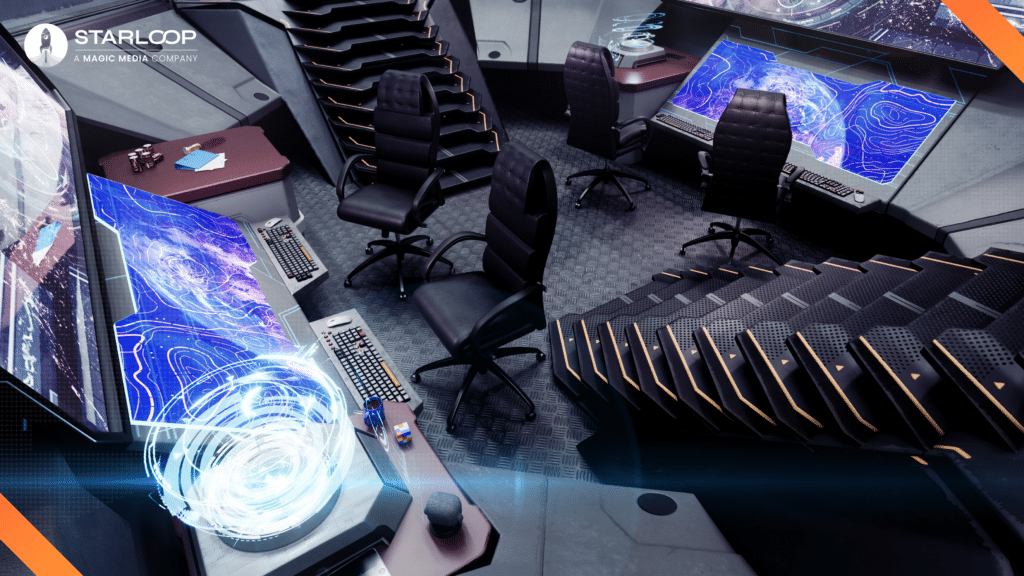Android game ports present unique challenges for game development studios looking to break into the largest mobile gaming market. Android has a large and varied ecosystem, necessitating diligent work on behalf of the development studio to deliver high-end game ports.
Starloop Studios has had the pleasure of assisting countless clients with their Android game ports throughout our years of experience. We possess extensive experience with game porting projects and intimately understand how to produce them to a high standard.
Android Game Ports, Hardware, and Fragmentation
Android is supported on countless devices created by numerous high-end and budget manufacturers. Every device has different screen resolutions, RAM, GPU, and CPU specifications. Because of this hardware variation, Android game porting isn’t as simple as porting to consoles with set specifications. Android game ports require extensive testing and optimization to ensure the port runs smoothly across a range of Android devices.
Further adding to the complications of Android game port testing and optimization is the broad variety of OS versions, also known as fragmentation. The difficulty for development studios is that different operating system versions support different API levels. To combat this, developers can use an API level that reaches the widest possible audience while still being able to leverage new and exciting features.
Optimization for Android Game Ports
A significant portion of Android game porting projects should be dedicated to optimization. Typically, games being ported to Android originate from PC and console platforms. These platforms can run games at significantly higher frame rates and higher visual fidelity, which means that Android game ports, more often than not, need to be adjusted to provide a high-quality player experience.
Performance-wise, development studios should ensure they adjust models and texture quality to improve Android performance. This helps drastically reduce memory usage and improve performance. Developers can use dynamic scaling methods so that in-game asset quality adjusts based on the individual device’s specifications, which should help improve performance across the board. Similarly, resolution needs to be adjusted for the wide variety of Android mobile devices on the market. This too can be handled dynamically, so smooth frame rates can be maintained across many devices featuring different screen sizes and resolutions.
A unique concern for Android game ports, as well as iOS and Nintendo Switch, is battery optimization. There are any number of background processes that can negatively affect a mobile device’s battery while playing games. Development studios working on Android game porting projects should aim to reduce processes like sensors and location services as much as possible to converse valuable battery life. High frame rates can also drain the battery, so capping FPS should be considered for game porting projects.
Android Game Ports and Player Experience
As with any game development project, developers of Android game porting projects should prioritize the player experience. This involves optimizations as previously mentioned, but it also requires diligent work to adapt the game’s input methods for touchscreens.
Android game ports primarily rely on touchscreen controls, as opposed to the keyboard and mouse and controller schemes on PCs and consoles, respectively. Though some mobile games can support these inputs, the main method of interaction mobile gamers use is the native mobile device touch screen. This necessitates redesigning the UI and input methods to be touch-friendly, a significant undertaking for games originally designed for use with controllers and keyboards. This challenge, coupled with the variety of screens available on Android devices, makes UI and interaction one of the highest priorities of any Android game porting project.
Feedback, which is essential to any gameplay experience, is also paramount in Android game ports. Controllers have the advantage of complex vibration and haptic systems, and Android game porting developers should reap the benefits of similar mobile systems to help gameplay feel immediate through various feedback systems. Using visual feedback on virtual buttons, haptic vibrations, and audio feedback appropriately can help Android game ports feel as immersive as their console and PC counterparts.
At Starlooop Studios, we provide expert gaming industry services, including game porting for mobile and other platforms, full-cycle game development, and much more. Being part of Magic Media, we offer further services encompassing the entertainment and tech industries. Contact Starloop Studios today to learn more about how we can bring your game to the next level!
